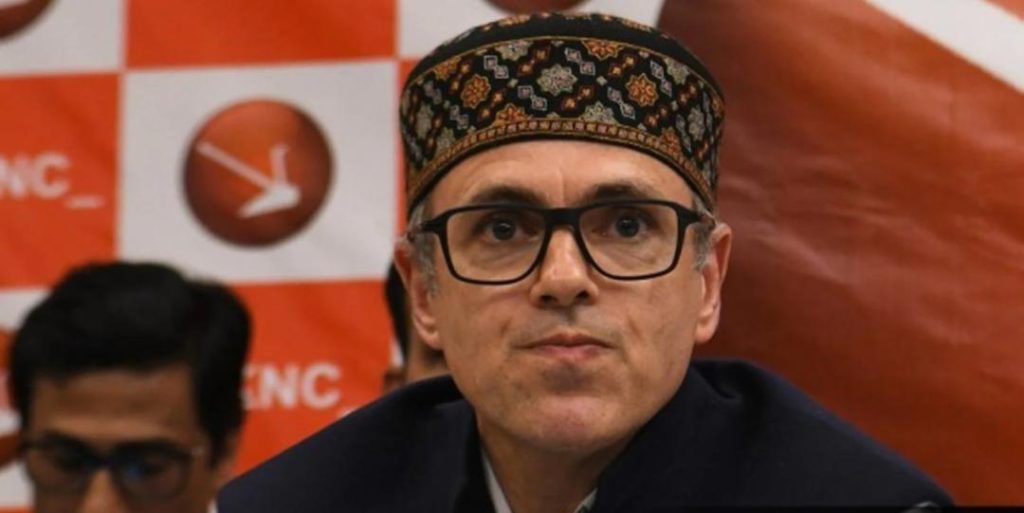
Title: Pahalgam has not stalled J&K statehood talks: CM Omar Abdullah
The recent attack on a tourist bus in Pahalgam, Jammu and Kashmir, has sent shockwaves across the country, leaving many wondering if it would stall the ongoing conversation around the state’s statehood restoration. However, Chief Minister Omar Abdullah has come out to clarify that the attack has not halted the talks, and that he has actually raised the issue at the recent NITI Aayog meeting.
In an interview, Omar Abdullah stated that while he was unwilling to use the J&K assembly’s special session to discuss statehood, it does not mean that the conversation has stopped. He emphasized that the issue of statehood is still very much alive, regardless of the Pahalgam attack.
The Pahalgam attack, which occurred on April 22, was a brutal incident that left several tourists injured and a sense of fear and uncertainty in the air. In the aftermath of the attack, there were concerns that it might divert attention away from the statehood issue, which has been a contentious topic in Jammu and Kashmir for years.
However, Omar Abdullah’s comments suggest that the state government is committed to pursuing the statehood issue, despite the challenges posed by the attack. This is significant because statehood has been a key demand of the people of Jammu and Kashmir, particularly in the wake of the abrogation of Article 370 in August 2019.
Article 370 was a constitutional provision that granted special status to Jammu and Kashmir, allowing it to have its own constitution, flag, and autonomy. The provision was scrapped by the Indian government in August 2019, leading to widespread protests and unrest in the state.
Since then, there have been demands for the restoration of statehood, with many arguing that it is essential for the state’s development and progress. Omar Abdullah, who is a member of the National Conference, has been a vocal advocate for the restoration of statehood, and has repeatedly raised the issue in various forums.
In his recent interview, Omar Abdullah emphasized that the statehood issue is not just a matter of nostalgia, but a critical question that impacts the lives of the people of Jammu and Kashmir. He argued that without statehood, the state’s autonomy and decision-making powers are compromised, leading to a lack of accountability and transparency in governance.
Omar Abdullah also highlighted the importance of involving the people of Jammu and Kashmir in the decision-making process, particularly when it comes to issues that affect their lives. He emphasized that statehood is not just a matter of power, but also a matter of participation and representation.
The CM’s comments come at a time when there are growing demands for the restoration of statehood in Jammu and Kashmir. There are concerns that the absence of statehood has led to a lack of accountability and transparency in governance, and that it has also compromised the state’s autonomy and decision-making powers.
However, the road to statehood is not without its challenges. The Indian government has so far been unwilling to restore statehood, citing concerns about the state’s security and stability. Additionally, there are also concerns about the state’s financial situation, with many arguing that it is not viable to restore statehood without addressing the state’s financial constraints.
Despite these challenges, Omar Abdullah’s comments suggest that the state government is committed to pursuing the statehood issue. The CM’s willingness to raise the issue at the NITI Aayog meeting is a significant development, as it indicates that the state government is willing to engage with the central government and other stakeholders to find a solution.
In conclusion, while the Pahalgam attack has sent shockwaves across the country, it has not stalled the conversation around J&K’s statehood restoration. Omar Abdullah’s comments suggest that the state government is committed to pursuing the statehood issue, and that it is willing to engage with the central government and other stakeholders to find a solution.
As the state government continues to push for statehood, it is essential to involve the people of Jammu and Kashmir in the decision-making process. This can be achieved through public consultations, town hall meetings, and other forms of engagement. By involving the people in the decision-making process, we can build a more inclusive and participatory approach to governance, and ensure that the voices of the people are heard.
Ultimately, the restoration of statehood is a critical question that impacts the lives of the people of Jammu and Kashmir. It is essential that the state government, the central government, and other stakeholders work together to find a solution that addresses the concerns and aspirations of the people.






